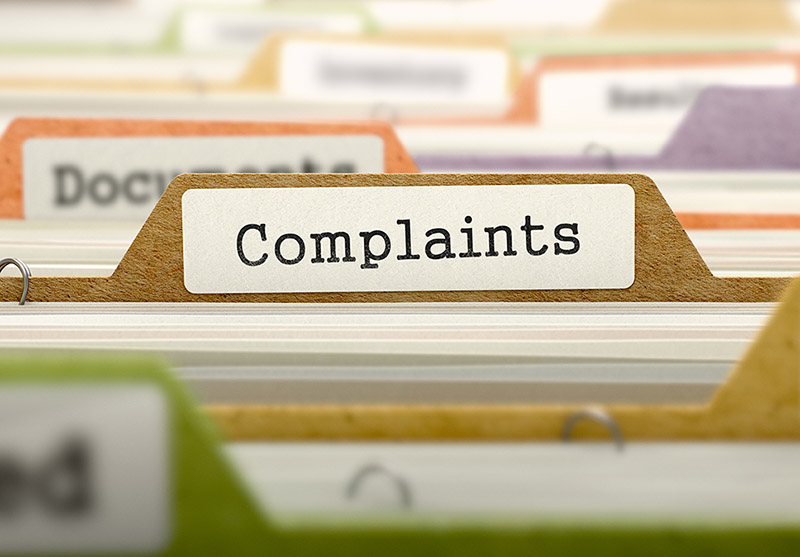
What is the optimal path to recover from a complaint?
When things go wrong and your business ends up with a complaint and possibly a bad online review from that customer, the standard advice has been to apologize and commit to making sure that the problem that caused the situation has been fixed and will not occur again in the future.
But is that always the best strategy?
Since that advise was written some interesting research has come out that indicates, while it may work for impressing future customers, it is not in fact the best way to retain the customer that made the complaint.
My Complaint Story
I once reserved a car nearly a week in advance from a national car rental company that had a local office. The car that I arrived to at pickup was smoke filled and had disgusting stains. Despite the fact that I had given them four days to get me a car, they said that they could not replace it for another 6 hours.
I explained that I had a deadline AND asthma and the staff were either unwilling or unable to fix the problem. I had no other rental company choice. I was forced to leave with the car and live with the mess. I attempted to call management to see if there was any willingness to make the situation right.
After nearly a week of not hearing, and then after several totally unsatisfactory calls I finally left a scathing review on Yelp. It took a lot of bad customer service on their end to drive me to Yelp but I felt at that point that I had no other choice but to warn other consumers.
Their social team jumped into action and offered to take the conversation offline. That seemed futile to me and I pointed that out in my review revision. They ultimately removed their awkward response and the company lost a regular customer.
It all could have been avoided. I wasn’t looking for blood. All I expected was a partial credit on my credit card as a token since all opportunities to fix the issue at the start didn’t happen. At most it would have cost them $50-$75.
All I got was a managerial response that they really just didn’t care. In the end, the company lost thousands of dollars of future rental income.
The Research On Apologizing “Correctly”
It turns out that my expectation of even nominal compensation is not out of the norm. Customers are expensive to acquire and the lifetime value of a customer far exceeds the value of any one transaction.
The research study by University of Chicago economist and former chief economist at Uber, John List, says that people best respond to an apology when it actually costs the one apologizing something, especially in business. The research was able to look at both the short term but more importantly the long term impact of different apologies. There was a 4% difference in income when apologizing was done correctly.
According to the research, making the commitment to improve will likely lead to a future experience that has not in fact improved, and that customer will then be lost for good.
And noting that you did something stupid takes a toll on your reputation.
Customers expect an apology but they also respond best to an act of contrition.
The big takeaway for me from the research is that a straight forward offer of an apology and compensation together is the best way to retain that customer.
How Does This Knowledge Affect Your Review Response Strategy?
First, it means that you need to know that the customer is unhappy. That requires being proactive and asking your customers. It’s too late if you are waiting for the online review to show up at Google, TripAdvisor, or Yelp.
If you have a private customer feedback path in place you can empower your staff to engage, apologize, and offer the customer something that they perceive of value to offset their negative experience.
Secondly, this tactic will work best when you have both a public and a private channel for communication with the unhappy customer. This allows you to make a public apology with your response but then provide a private follow up with a more substantial attempt to reconcile with them. Even a coupon against future expenses can be very effective.
This serves both the need of communicating to future customers that you are reasonable but allows you to be flexible in your private dealings without fear of future customer/complainers thinking that they can blackmail you with a complaint.
Google on the other hand only allows you to make a public response. If you drove your customer through GatherUp you have a good chance of knowing who they are and you can reach out privately.
But if not, the best that can be done is to apologize, commit to doing it better and encourage them to reach out to you for resolution. In doing so your odds of retaining that customer trends down toward zero.
The Answer To Customer Complaint Resolutions
At GatherUp we empower your business a great opportunity to manage, control, and learn from this process.
As I have outlined a process to complaint responses, we give you the ability to:
- Ask for feedback so you find out first – not from an online review as that is likely too late
- Leverage the combination of public and private communication and replies to improve the chances of keeping the customer
- Combine an apology with compensation (refund, coupon, etc.) to improve customer retention after an issue
- Reporting to capture, learn, and understand what to fix in the business and head most issues off from the start
We believe that listening to your customers is a business superpower. It is a power that not only allows you to keep improving, it allows you to retain customers that might otherwise be lost.


Comments are closed.